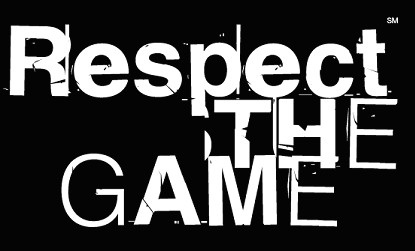
|
|
|
Scuttlebutt News: Is the ‘Fundamental Principle’ Still Relevant? By Peter Wilson, US SAILING Umpire/Senior Judge As a racing sailor who is also a coach, judge and umpire, I worry that the ‘fundamental principle’ which is the foundation of our (mostly) ‘self regulating’ sport has become significantly less relevant. As a consequence, our racing rules appear to have less value to competitors, and the behavior we expect these rules to encourage is not as prevalent as it used to be. Quoting from the RRS, “Competitors in the sport of sailing are governed by a body of rules that they are expected to follow and enforce. A fundamental principle of sportsmanship is that when competitors break a rule they will promptly take a penalty, which may be to retire.” Most of us would agree that this means; 1) If I hit a mark and whether someone sees me do it or not, I should take a one-turn penalty; 2) If I tack to port because I can’t fetch the starting pin and force a boat on starboard to tack when she can fetch, I should take a two-turns penalty whether or not the other boat hails protest; and 3) If a boat fouls me in a way that significantly worsens my position in the race, I should enforce the rules and protest. However, what I have observed on the race course over the past fifteen years, in the U.S. and abroad, is a growing percentage of sailors who do not enforce and follow the rules. I see sailors break rules with contact between boats and ignore their infraction, even when the other boat protests or the infringing boat gains an advantage in a flagrant foul. I am not talking about incidents where who is at fault is unclear and no penalty turns are taken or no one is protested. We all do that from time to time. I’m talking about the apparent trend towards an obvious level of clear infractions with no action by either party. What seems puzzling is, if it is so easy to exonerate, why does it happen so seldom? Why do sailors break rules and keep on sailing if no one protests? Why do sailors use kinetics when there are no judges around? And a related question is, why aren’t there more protests taken to the room? Are the rules not as relevant in today’s world as they used to be? Perhaps the best analogy is speeding on the highway. Lots of us drive above the speed limit. But when the radar detector says we are approaching a trap, or we see a cop parked up ahead or coming up behind us, we slow down. But most of the time, the ‘speeders’ speed. Similarly, when there are judges or umpires enforcing Rule 42 (kinetics) on the water, body pumping, rocking, and sculling seem to disappear when the judge boats are close by, but they often reappear when the judge moves on to observe other boats. And, when judges whistle their observation of a foul with the option to protest, competitors usually take their penalty…and when the judges are not around (or don’t whistle/protest), not much happens. Just like speeding, it seems as if one doesn’t break a rule unless an official says we do. In a recent Laser event, the judges flagged over forty Rule 42 infractions, but observed at least twice as many serious infractions of Part 2 rules (many where boats gained an advantage), and that does not include twice again as many contact incidents observed at the starts with an adequately long line… and fewer than five percent of sailors took voluntary penalty turns. I guess judges can only control the behavior they are authorized to monitor, unless they want to discourage enforcement and compliance by the sailors. If indeed our racing rules and the ‘fundamental principle’ have become less relevant to many sailors (but not yet the majority) …why is this the case and should we do something about it? Here are some possible reasons for lack of ‘compliance’: What can we do about the problem? Is it practical to fully referee our sport? Of course not...although we know umpiring works pretty well for all concerned in team racing, match racing and medal races. And there is good evidence that having judges or umpires on the course with authority to signal by whistle their observance of a foul, and protest if they want to, can work in big fleets when the judges are positioned at the starts and mark roundings where most incidents occur. However, there are clearly not enough judges or umpires to implement broad scale on the water judging. So what do we do? Should we abandon the fundamental principle? I would not because the majority of races sailed each year have to rely on it. Should we accept the sailors ‘no harm - no foul’ principle? I would not because clearly it is leading to some ‘no protest - no foul’ behavior where some sailors gain a big advantage. Perhaps we need to change the incentives to protest and at the same time the incentive to exonerate on the water and to avoid the protest room. For example: 1. Give more power to the protestor. Allow a protested boat to take a 25% scoring penalty any time prior to the hearing (unless there is damage or injury or competitive advantage claimed in the protest). However, if the protested boat does not take a scoring penalty before the protest hearing (either voluntarily or as a result of arbitration) and is deemed to have broken a rule by the protest committee, the penalty is a DNE. 2. Make it easier for a protested boat to exonerate on the water. Change the alternative penalty for immediate exoneration to one-turn except within the zone or when there is contact, where it remains two-turns. 3. Require on-the-water judges with Sailing Instruction permission to protest at all national championships, ladder events and international qualifiers. An on-the-water protest by a judge/umpire is an automatic three turn penalty (two more turns than a voluntary penalty, except at a mark or with contact), and can still be taken to the protest room if there is damage, injury, or competitive advantage is gained, for a possible DNE. 4. Increase the penalty for a breach of rule 2 (fair sailing), perhaps a DNE and a DNC for the next nearest race in the series. Some may feel that the direction (and it is only that) suggested above is draconian, and perhaps it is. However I believe the issue needs to be addressed with big changes if we want to reverse the decline in adherence to the ‘fundamental principle’.  March 17, 2011 back to top |







|

